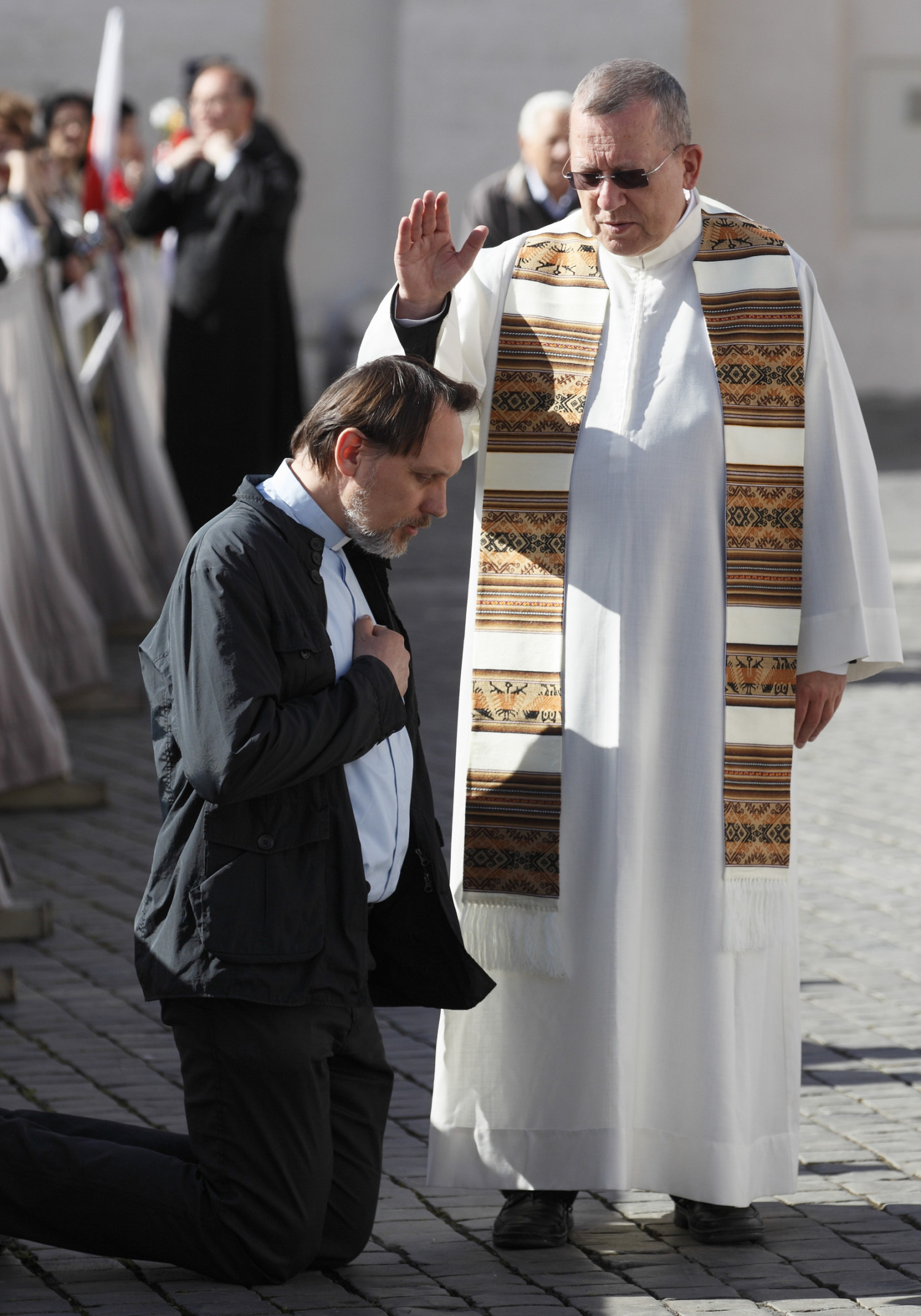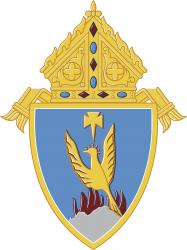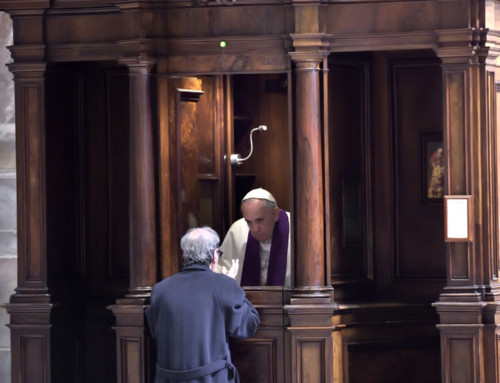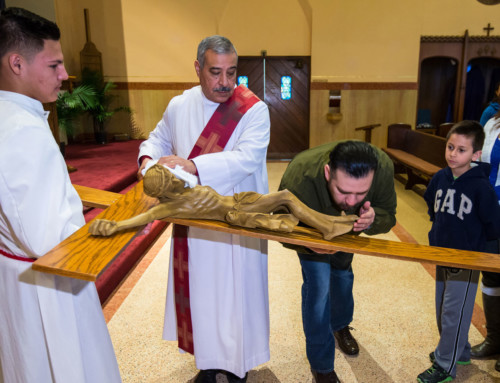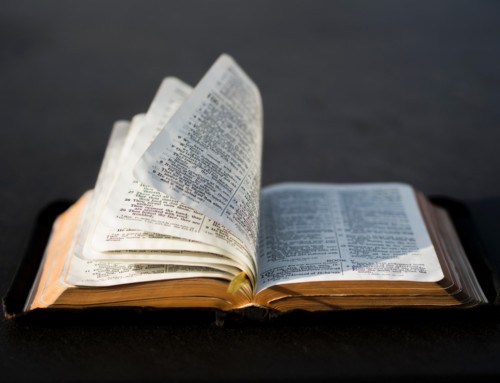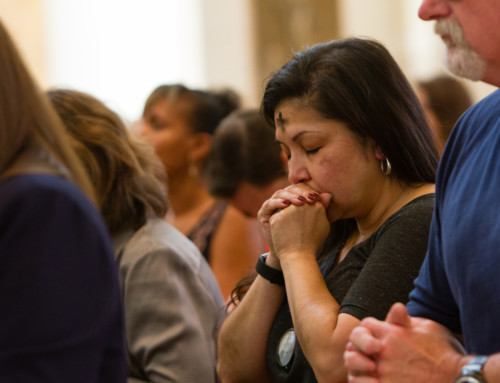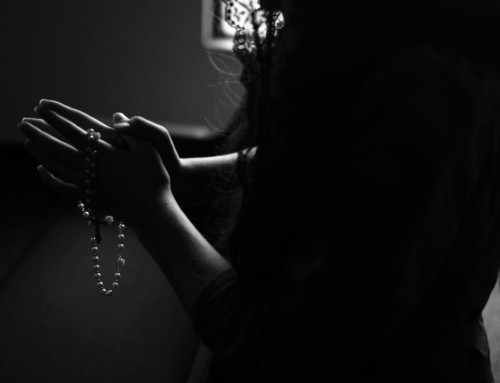Reconciled to Right Relationship,
Called to Heal and Restore
The new life in Christ that begins in Baptism may be weakened or lost through sin. Sin ruptures not only our relationship with God but also with our brothers and sisters.
By the nourishing light of the Holy Spirit, we are able to prepare for the Sacrament of Penance by examining our consciences to identify those ways in which we are not in right relationship with God and with others. This examination also challenges us to recognize our own participation in the “structures of sin” that degrade others’ lives and dignity.
Through the Sacrament of Penance, God offers mercy and forgiveness. In response to this gift, we are called to become vehicles of Christ’s love, making amends and restoring justice and the bonds that have been broken. Healed and forgiven, we are sent to work for peace, justice, and love in our communities and world.
Sin damages our relationship with God and neighbor.
In the Gospels, Jesus teaches that love of God and love of neighbor are intimately connected (Mt 22:38-39; Mk 12:29-31). When we sin against those in need by failing to act compassionately toward them, we ignore Christ himself (Mt 25:31-46). In the words of Pope Benedict XVI, “Closing our eyes to our neighbor also blinds us to God” (Deus Caritas Est [God Is Love], no. 16). Sin ruptures our relationship with God and also with other members of the Body of Christ (Catechism of the Catholic Church [CCC], no. 1440). Take a moment to consider ways that you have broken any of the Ten Commandments:
- Are there any false “gods” (e.g., material things, pleasure, etc.) that you place above God and other people?
- Have you treated family members or others with disrespect?
- Have you lied, gossiped, cheated, or stolen?
Sin is never an individual affair.
Sin damages our relationships with others and all of creation. Thus, sin is never a purely individual affair and has social dimensions (Pope Benedict XVI, Sacramentum Caritatis [Sacrament of Charity], no. 20; Pope John Paul II, Reconciliatio et Paenitentia [Reconciliation and Penance], no. 15).
Sin becomes manifest in unjust structures.
The collective actions (or failures to act) of individuals create “structures of sin,” which “grow stronger, spread, and become the source of other sins” (Pope John Paul II, Sollicitudo Rei Socialis [On Social Concern], no. 36). For example, widespread poverty, discrimination, denial of basic rights, and violence result from many peoples’ actions (or failures to act) because of greed, racism, selfishness, or indifference (Reconciliatio et Paenitentia, nos. 2, 16). We are all called to consider how we contribute to structures of sin in our personal, economic, and public choices. For example:
- Do we take into account the treatment of workers when we make purchases?
- How do our consumption choices contribute to environmental degradation?
- Are we aware and informed?
- Do we take the time to educate ourselves about issues that affect the community and advocate on behalf of those who are poor and vulnerable?
We are called to examine our consciences and admit our failings.
The Sacrament of Penance challenges us to examine our hearts inwardly and then express outwardly the ways we have failed to love God and neighbor—through both personal sin and social sin.
Examining our consciences teaches us how to “look squarely at our life” to see how well we are living the Gospel (Pope Benedict XVI, Address to participants in the Course on the Internal Forum organized by the Tribunal of the Apostolic Penitentiary, March 25, 2011). Only in recognizing our failings can our hearts be converted to God so that we can receive his forgiveness and allow his grace to heal us and our relationships.
We receive God’s forgiveness and mercy.
The Sacrament of Penance allows us to receive forgiveness of sins and be reconciled with God, self, the Church family, and the human family—restoring our broken communion. Through Penance, we return to right relationships (Sacramentum Caritatis, no. 20).
We work to repair the harm we have done.
Reconciliation absolves us of our sin, but it does not repair the damage that was caused. We must do what is possible to repair the harm. The Catechism provides these examples: return stolen goods, restore the reputation of someone slandered, and pay compensation for injuries (no. 1459). We must work to repair the relationships with God and our neighbors that sin has impaired. We must also consider how we can work to transform the structures of sin that threaten human life and dignity. By making amends and working to build a more just community, we can repair the damage and also restore our own spiritual health.
The whole Church community plays a role in reconciliation.
We do not engage in the act of reconciliation alone. While the priest is the minister of the Sacrament of Penance, the whole Church community participates in the work of reconciliation (Ordo Paenitentiae). When we gather each Sunday, we call to mind our sins and intercede for one another. We hear the Word of God, which challenges us to reflect gospel values in our lives and relationships. As the Body of Christ, we also challenge one another to live lives of holiness, justice, and love. The Church is an instrument of conversion, calling all its members to love and reconciliation with God and neighbor.
We are called to be forgivers and peacemakers.
Having received the undeserved gift of forgiveness, we are called to extend the same forgiveness and mercy to others. We take up the task of being instruments of reconciliation in our communities and world, working for peace, justice, and love.
Questions for Reflection
Take a moment to reflect on how sin has damaged your relationship with others.
- What false “gods” do I place above God and people?
- After leaving Mass, do I continue to glorify God by the actions in my life?
- How have I failed to love others in my family, workplace, or community?
- Do I hold any views that are prejudiced or biased or that perpetuate stereotypes?
- Have I responded to the needs of the poor and those whose rights are unfulfilled?
- Do my personal, economic, and public choices reflect a genuine concern for others and the common good?
- Have I stood up to protect the dignity of others when it is being threatened?
- Am I aware of problems facing my local community and involved in efforts to find solutions?
- Do my purchasing choices take into account the well-being of those producing what I buy?
- How do I protect and care for God’s creation?
- Are there ways I could reduce consumption?
Adapted from Questions to Examine Conscience in the Light of Catholic Social Teaching in the “Resources and Tools” section at usccb.org/jphd. Learn about the other sacraments! Visit “Resources and Tools” at usccb.org/jphd.
Copyright © 2013, United States Conference of Catholic Bishops, Washington, DC. All rights reserved. Used with permission.

